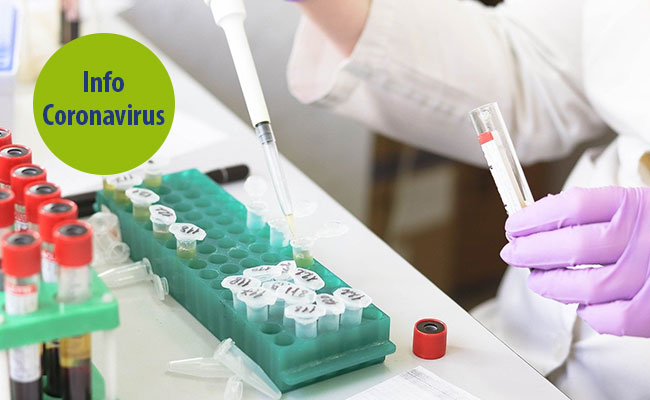ICC members at KL responsible for SARS-CoV-2 testing at University Hospital Krems
In preparation for surgeries at the University Hospital Krems, the Danube University Krems, supported by the Karl Landsteiner University of Health Sciences, performs PCR virus detection for upcoming operations of patients.

ICC Water&Health members at KL responsible for SARS-CoV-2 testing at University Hospital Krems
ICC- Water&Health members from KL have a leading role
At the Biomedical Laboratory of the Danube University Krems, virus detection of SARS-CoV-2 by PCR (Polymerase Chain Reaction) diagnostics is performed with the support of the ICC Water & Health Team at the Karl Landsteiner University of Health Sciences. Currently, samples from patients from the University Hospital Krems are tested in preparation for their operations. By excluding a COVID-19 infection, the medical staff of the University Hospital is also protected. The cooperation between the two universities was organized during the shutdown on the initiative of the Lower Austrian Health Agency and with the personal commitment of the laboratory teams of both institutions, thus relieving the laboratory infrastructure of the University Hospital. The capacity of the facilities is up to 300 tests per day. Currently, an average of 50 tests per day are performed for Krems.
Andreas Farnleitner and Karen Zuser are and are responsible for the organisation of the test facility on the part of KL. Melanie Leopold is involved in the analyses in the laboratory. Domenico Savio is available as a substitute member.
Tests up to seven days per week
Results are available within four hours, so doctors can quickly rule out a possible risk of SARS-CoV-2 infection for upcoming operations. In the run-up to the operation, the consistency of the PCR test results was ensured in the course of comparative measurements between the reference laboratory at the St. Pölten Clinic and the PCR laboratory at the Krems Campus. In order to ensure the high quality standards permanent quality controls are also carried out.
The tests are performed by six alternating teams up to seven days a week. Samples currently come mainly from UK Krems. Further clinics are to be integrated as required, thus increasing capacity. In addition to the PCR-cycler available at the Danube University Krems, the same type of equipment from KL would be used.
